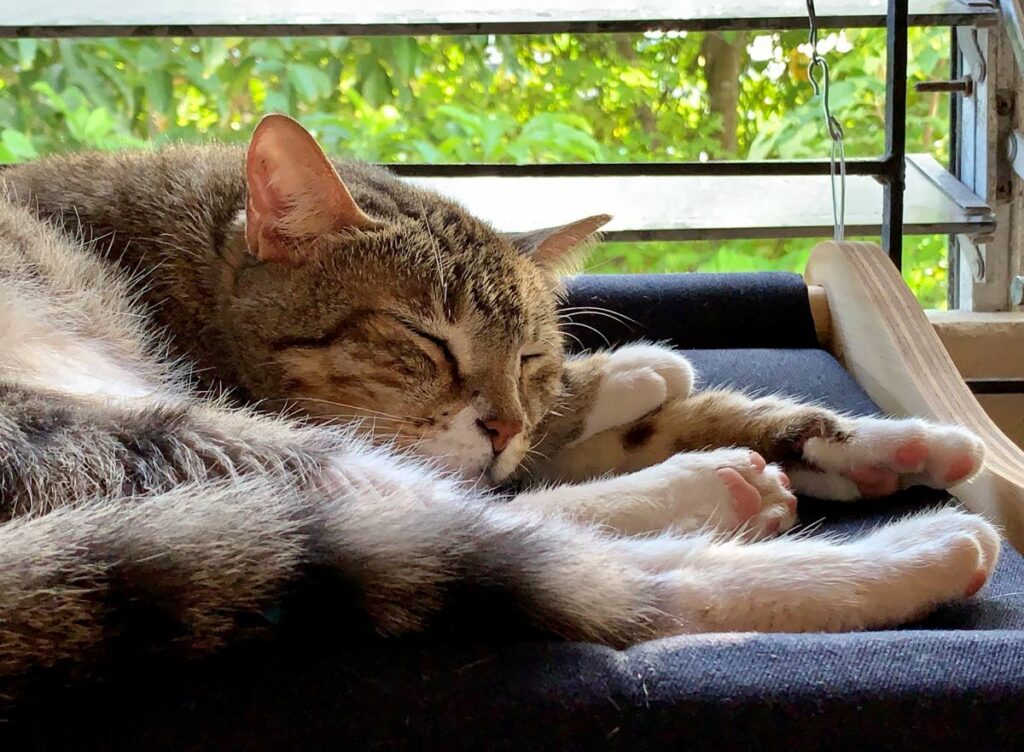Fur-filment: pets for health

There is a series of vintage-style posters that depicts serene young women surrounded by animals of many sorts, and they’re all captioned: “And she lived happily ever after.”
I have been sent so many versions of this I’ve lost track. Since I am neither serene nor young, I know it is a particular sentiment (rather than any resemblance to a picture of calm contentment) my loved ones hope to convey.
It has always been the case that some creature great or small has brought me comfort when nothing or no one else could. Mental health practitioners took a while, but they got there too.
Service animals have long been recognised for their aid to the physically impaired, such as the blind. Now, therapy and emotional support animals are becoming better known and less of a novelty.
Therapy animals, mostly dogs, sometimes cats, rabbits or horses, visit their clients in the places they are allowed to practise. Hospitals, jails, long-term care facilities, even schools.
You can see where this gets awkward for the horses. So, not wanting them to feel too self-conscious about their proportions, therapy horses may be visited at their homes.
A therapy animal has a handler who has charge of it, and both handler and animal have had some training to do with the safe and loving care of humans. Neither is allowed to bite, scratch or otherwise harm the patient. Nor is the patient allowed to do these things to the therapy team.

In return for all this good behaviour, the patient is given the soothing presence, the reassuring touch and sound – think purring or nickering – of someone who will give attention, gentleness, love, and unquestioned acceptance. They expect nothing in return.
Animals never do. I’ve read of patients with dementia unintentionally tearing the fur off therapy cats and the cats flinch not. Think of that the next time you think all cats are out to get you.
I know not everyone is a fan of the fur community, and some people have genuine fear of one animal or another, but I believe in the essential goodness of animals. I believe in the spirit of the old saying: “There are no bad dogs, only bad owners.” Extend that all around to all animals.
An emotional support animal (ESA) is likely to be your very own.
How is this different from a pet? There is one thing that makes for a clear distinction in countries in which ESAs are recognised and have special privileges and rights: their necessity is endorsed by a letter from a professional mental health care provider. ESAs are helpful to people with stress, post-traumatic stress disorder (PTSD), panic attacks, mood disorders and a range of other forms of mental distress.
Therapy animals cover a lot of the same ground as ESAs and are also thought to help those on the autism spectrum and schizophrenia patients. Beyond that, they bring comfort to people with purely physical ills: cancer patients and those with cardiovascular diseases.
With animals – pets or otherwise – you can reduce boredom, feel less lonely, feel braver about doing things you’re afraid of. You can look at them and know that whoever you are, whatever you think is wrong with you, they are not judging you. They somehow manage to embody, simultaneously, both joy and calm.
Touch is one of the things we need. When we are deprived of it, we feel the loss whether we register it consciously or not. Petting a dog often leads to happy nuzzling. Running your hands across the silky body of a horse is a kind of meditation. For reasons speculated but, I believe, still uncertain, the vibration of a purring cat calms the anxious soul.
Birds, fish, turtles, pigs, an unforgettable mention of a therapy crocodile, rabbits, hamsters – pick one: they have helped people just by being who they are.

Pray do not go out and seize an animal you are not prepared to care for with love and dignity. If you can’t afford to feed and shelter and take to the vet, do not get one. Ask a friend if you can visit theirs.
So now you know animals are getting into the medical field and it’s no longer just the lab rats we have to thank.
I have only ever been the recipient of the kindness of animals. If you let an animal – anything from a cat to a capybara – if you let them into your heart, they have the ability to bring to your life a sort of peace that really passeth all understanding.
Remember to talk to your doctor or therapist if you want to know more about what you read here. In many cases, there’s no single solution or diagnosis to a mental health concern. Many people suffer from more than one condition.


Comments
"Fur-filment: pets for health"